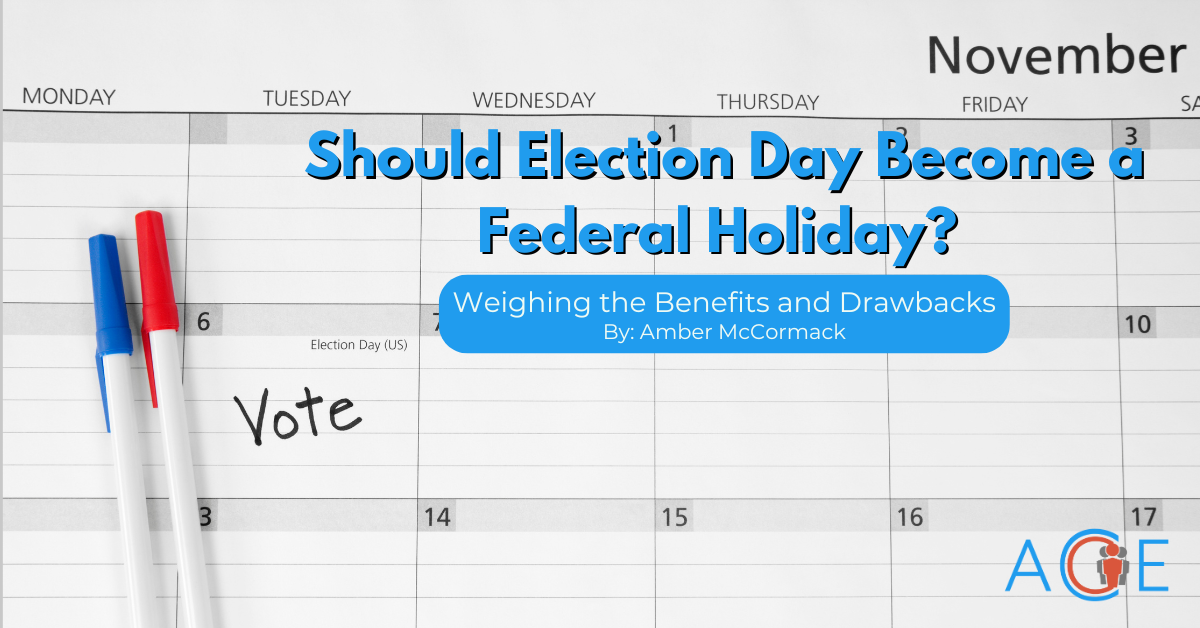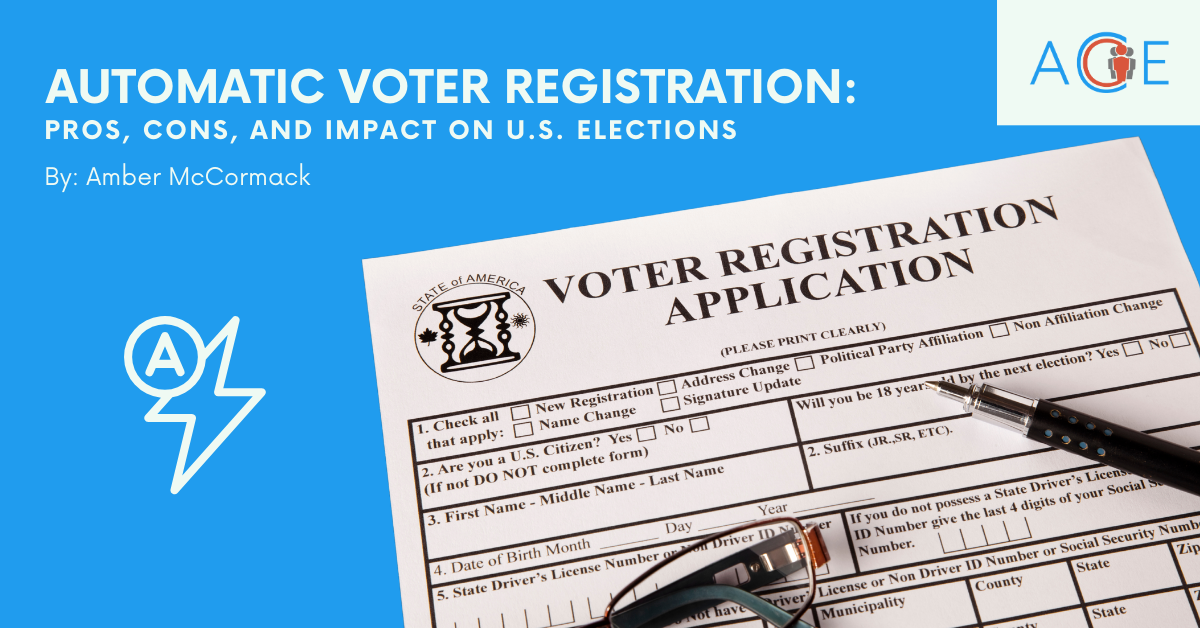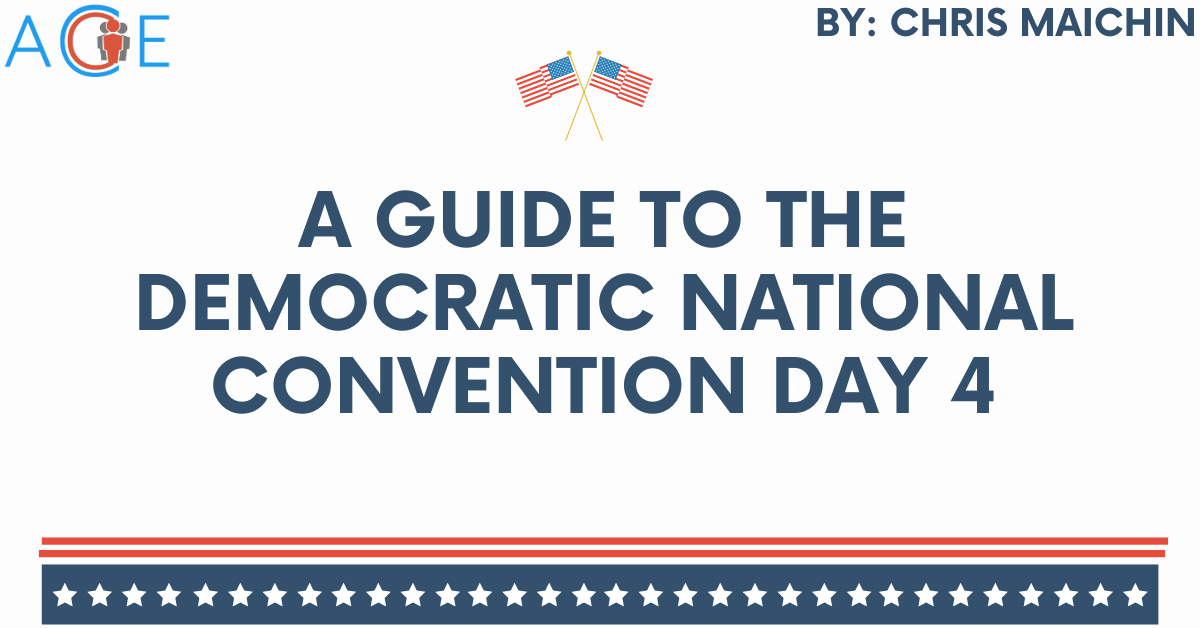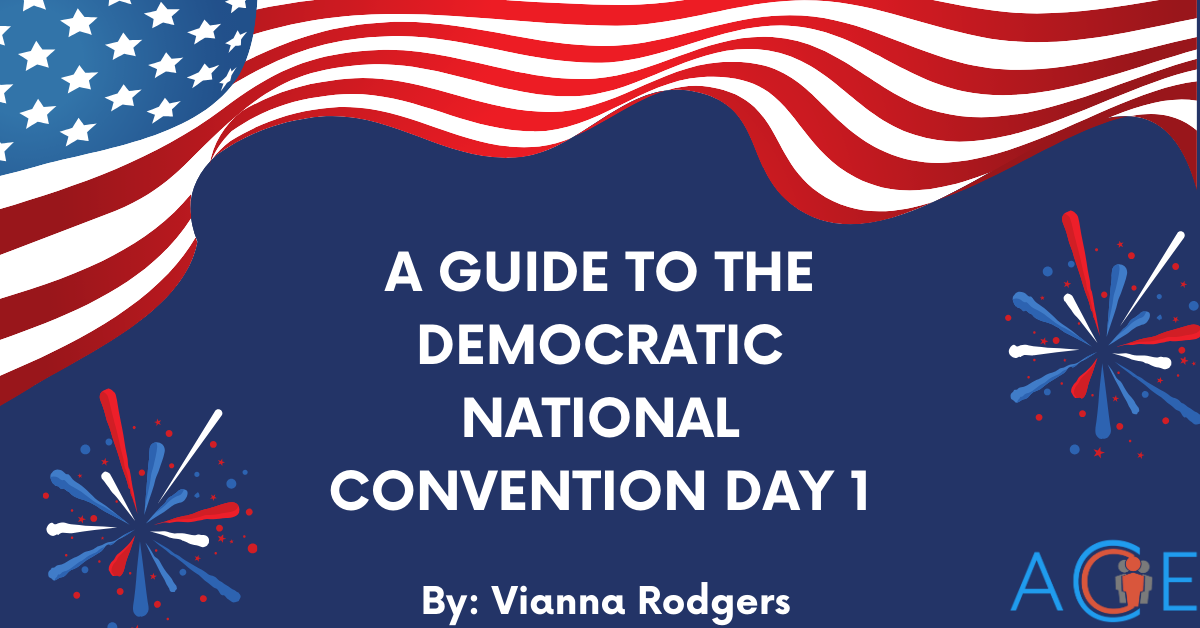The fourth and final night of the Democratic National Convention featured the theme “For the Future,” encapsulating the forward-looking message that has defined the event. While the night included appearances by high-profile celebrities, Democratic officials, and party elites, the spotlight was firmly on Kamala Harris as she officially accepted the Democratic nomination for President of the United States.
As calls for freedom and the promise of a new future echoed through the United Center in Chicago, here’s what the Democrats had to say as they closed out their convention and introduced their new leader.
Key Speakers of Night 4:
Elizabeth Warren
Elizabeth Warren emphasized Kamala Harris’s commitment to making life more affordable for working families. She highlighted Harris’s efforts to tackle price gouging during crises like the California wildfires and the pandemic. Warren portrayed Harris as a determined advocate for women’s rights, stating, “Kamala will protect abortion rights nationwide,” and concluded with a vote of confidence: “Kamala Harris is someone we can trust.”
Members of the Central Park 5
The Central Park 5 spoke about their wrongful convictions and subsequent exoneration, using their story to underscore the importance of justice and voting. They expressed their belief that Kamala Harris would continue to fight for fairness in America, with one member stating, “Vice President Kamala Harris has also worked to make things fairer. I know she will do the same as President.”
Former Arizona Rep. Gabby Giffords
Gabby Giffords, a survivor of gun violence, expressed admiration for Kamala Harris’s resilience and dedication. Giffords praised Harris’s ability to challenge the gun lobby and protect abortion access, portraying her as a leader with the strength to enact meaningful change: “Kamala can beat the gun lobby. She can fight gun trafficking.”
Arizona Sen. Mark Kelly
Mark Kelly focused on Kamala Harris’s dedication to national security and support for the military. He emphasized the importance of America’s alliances and the challenges a second Trump presidency might bring. Kelly commended Harris’s understanding of foreign policy, noting, “Kamala Harris knows that standing with our allies means standing up for Americans.”
Michigan Governor Gretchen Whitmer
Governor Gretchen Whitmer highlighted Kamala Harris as a leader who understands the struggles of ordinary Americans, particularly working women. Whitmer drew parallels between their shared experiences of caring for ill mothers, and emphasized Harris’s commitment to healthcare and elder care, stating, “Kamala Harris knows who she’s fighting for too.”
Maya Harris, Kamala’s Sister
Maya Harris provided a personal glimpse into Kamala Harris’s upbringing, sharing stories about their mother’s influence. She described their mother, Shyamala Gopalan Harris, as a trailblazer who instilled in them a belief in their potential and a responsibility to fight for justice. Maya highlighted Kamala’s lifelong dedication to these values, saying, “Kamala’s entire life has been about fighting for each of us to have that freedom.”
North Carolina Governor Roy Cooper
Governor Roy Cooper spoke about Kamala Harris’s determination to stand up for everyday Americans against powerful interests. He recounted how Harris, as California’s Attorney General, secured $20 billion for California families during the foreclosure crisis. Cooper praised Harris as a leader who “does exactly what she said she’s going to do,” urging Americans to support her as she would fight for them.
Kamala Harris
Kamala Harris’s speech was the crowning moment of the convention, blending her personal story with a strong policy vision. She began by acknowledging her roots, particularly the influence of her mother, Shyamala Gopalan Harris, and her immigrant upbringing. Harris spoke at length about the values instilled in her by her family, such as community, faith, and the importance of justice. She linked these values to her professional journey, highlighting her work as a prosecutor and attorney general, where she fought against sexual abuse, big banks, and elder abuse, emphasizing that “a harm against any one of us is a harm against all of us.”
Harris laid out her vision for the economy, promising to build a strong middle class through an “opportunity economy” that would create jobs, lower the cost of living, and provide access to capital for small businesses. She sharply contrasted her vision with Donald Trump’s, accusing him of serving only himself and his billionaire friends, while she pledged a “middle-class tax cut.”
Harris underscored her administration’s commitment to supporting Ukraine in the face of Russian aggression. She recalled her direct engagement with Ukrainian President Volodymyr Zelensky, warning him of Russia’s impending invasion: “Five days before Russia attacked Ukraine, I met with President Zelensky to warn him about Russia’s plan to invade.” She highlighted how the Biden administration successfully rallied over 50 countries to defend Ukraine, declaring, “I helped mobilize a global response… to defend against Putin’s aggression.” This, she argued, is essential to upholding democratic values and international law.
On the Israel-Gaza war, Harris expressed unwavering support for Israel’s right to self-defense while acknowledging the humanitarian crisis in Gaza. “I will always stand up for Israel’s right to defend itself,” she stated, while also describing the devastation in Gaza as “heartbreaking.” Harris emphasized the administration’s diplomatic efforts to achieve a ceasefire and secure a hostage deal, noting, “President Biden and I are working around the clock because now is the time to get a hostage deal and a ceasefire deal done.”
Outlining her broader Middle East strategy, she focused on countering Iranian-backed terrorism and strengthening U.S. alliances. She criticized Trump for being easily manipulated by autocrats like Kim Jong Un, warning, “They know Trump won’t hold autocrats accountable because he wants to be an autocrat himself.” Harris pledged to maintain U.S. leadership in critical areas like space and artificial intelligence, vowing, “I will make sure to lead the world into the future on space and artificial intelligence that America, not China, wins the competition for the 21st century.”
She reaffirmed her vision of America as a global leader that champions democracy, human rights, and strong alliances. She contrasted this with Trump’s isolationism, urging, “In the enduring struggle between democracy and tyranny, I know where I stand and I know where the United States belongs.” Harris called on Americans to support her leadership to secure the nation’s future and uphold the values that define American democracy.
Harris also spoke on women’s reproductive rights, positioning it as a fundamental freedom that is under unprecedented attack. She directly linked the current state of reproductive rights in America to Donald Trump’s influence, stating, “Donald Trump handpicked members of the United States Supreme Court to take away reproductive freedom. And now he brags about it.”
Harris recounted stories from women across the country who have suffered due to the erosion of reproductive rights, highlighting the human cost of these political decisions. “Women have told me those stories… of miscarrying in a parking lot, developing sepsis, losing the ability to ever again have children,” she said, painting a vivid picture of the stakes involved.
Harris also warned of Trump’s broader agenda: “As part of his agenda, he and his allies will limit access to birth control, ban medication abortion, and enact a nationwide abortion ban with or without Congress.” In contrast, Harris pledged to restore these rights, asserting, “When Congress passes a bill to restore reproductive freedom, as president of the United States, I will proudly sign it into law.”
Vice President Harris concluded her speech with a call to action, urging Americans to embrace a future defined by freedom, opportunity, and unity. She contrasted this vision with the divisive rhetoric of her opponents, stating, “In the enduring struggle between democracy and tyranny, I know where I stand and I know where the United States belongs.”
“Let us show each other and the world who we are and what we stand for: freedom, opportunity, compassion, dignity, fairness, and endless possibilities.” Harris called on Americans to rise to the occasion, saying, “It is now our turn to do what generations before us have done… to fight for the ideals we cherish and to uphold the awesome responsibility that comes with the greatest privilege on earth, the privilege and pride of being an American.”
With this rallying cry, Harris sought to unite the nation around a vision of progress and inclusivity, urging all to vote and contribute to writing “the next great chapter in the most extraordinary story ever told.”
The stage is now set. The candidates are locked in, and there is no going back.
Coming off a historic convention, Kamala Harris seems to have all the momentum heading into November. But now, she faces the real test.
In just under three weeks, Harris will face Trump on the debate stage. For the first time, Americans will have the chance to see the contrast between Donald Trump and Kamala Harris, compare their visions for the country, and decide who they want to lead them into the future.
Get ready, America, because we’re in for a ride.
Stay here to get all your news without the spin. Stay engaged, stay informed, stay critical.
Questions to ask yourself after reading
Do I agree with Vice President Kamala Harris’ vision for the country?
Do I agree with her policy in regards to the economy, foreign policy, abortion, etc?
Do I know enough about VP Harris’ policies?






